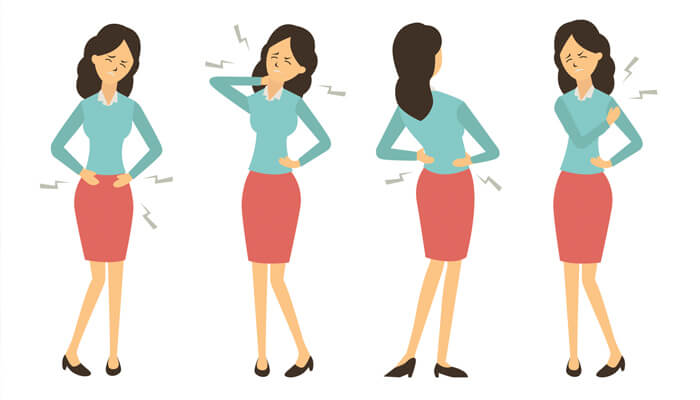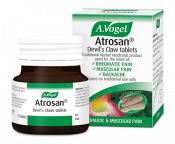How does the body react to stress?
The body responds to stress, be it money worries, moving home or something else entirely, as if it were a life or death situation. For our ancestors this reaction was needed to overcome the dangers posed by wild animals, as well as other tribes and, although modern day stress doesn’t always present a threat to our life, our reaction to it is the same:
- During a stressful situation adrenaline is released into the blood
- Blood is diverted to the brain, heart, lungs and muscles as these need to work hard in order to get away from the source of stress
- The heart beat speeds up to pump blood more effectively around the body and to these areas
- Blood is diverted away from the digestive tract as eating shouldn’t be on the agenda when there is a life or death situation going on
- Breathing speeds up to get oxygen supplies to the muscles as quickly as possible
- Sweat levels increase to stop the body from overheating
- Blood sugar levels rise dramatically so that glucose is available to feed the brain and muscles
- Senses become more acute so that you are able to pick up as much information as possible in order to make good judgements.
Does stress affect your muscles?
As increasing levels of adrenaline circulate the body in response to stress, our blood sugar levels rise and blood is diverted towards our muscles. The body expects that you will have to run from the source of stress so this happens in anticipation of that. This reaction can make us feel warmer, stronger, more physically able, plus it can increase stamina.
This reaction is ideal if the source of stress is short-lived (i.e. you run away from the life-threatening tiger and then carry on with the rest of your day). If, however, the source of stress remains relevant for a long period of time (i.e. the continued pressures of work and family life) then over time stress can translate into less desirable symptoms such as aches and pains, cramp and muscle tension.

What does stress do to the rest of your body?
Stress doesn’t just cause muscle and joint pain and, in fact, it can have a significant impact on many areas of the body.
When a source of stress is detected, blood is diverted to the brain, heart, lungs and muscles so that we feel more focused and alert. Over time, however, this can become emotionally draining and you may feel increasingly tired, anxious and overly emotional, plus it is quite common to experience mood swings, memory loss and low mood.
Digestion is another area that can suffer at the hands of stress as this is simply not the body’s priority at this time. Initially diarrhoea can become problematic and, if you suffer from IBS, symptoms may become more pronounced. In the longer term stomach acid levels can decrease leading to problems such as acid reflux. Also, as food isn’t being broken down properly, and the internal environment isn’t quite right, other issues such as leaky gut can cause more digestive upset – queue bloating, stomach pain and constipation.
Another issue is that stress can increase our heart rate which, over time, can cause chronic high blood pressure and regular heart palpitations.
What lifestyle changes can reduce stress?
To minimise the many possible side effects of stress it can help to make some simple lifestyle changes.
- Try some relaxation techniques – this is an important step in stress management. Why not go to a yoga or meditation class with the support of a friend? Alternatively, try listening to some relaxing music or podcast in the evening instead of watching television
- Do a little exercise – this will release feel good hormones called endorphins which can help to boost mood. Exercise also makes us more ready for sleep at night, raises energy levels and helps us relax. If you are wondering how to incorporate more exercise into your daily routine then start with one 30 minute walk each day then, once you are ready to do a little more, take a look at our Get Active hub for some inspiration
- Drink sensibly – avoid stimulants such as caffeinated drinks and fizzy juice as these will only make you feel more anxious or jittery. Drink at least 1.5 litres of plain, still water daily as dehydration will only add to unwanted feelings of stress
- Top up on B vitamins – eating fresh foods will help to supply your body with many of the nutrients that can easily become depleted during times of stress. B vitamins, which are found in leafy green vegetables, oats, avocadoes, seeds and nuts, support the nervous system and can even help to calm mood
- Get some magnesium – this is found in wholegrains, dark leafy greens, beans and pulses. Magnesium is excellent for the muscles and joints as it helps to prevent cramp however, it also helps to reduce feelings of irritability
- Sit down to eat – this is relaxing and helps to ensure all those beneficial nutrients are being absorbed properly.

What is the best remedy for stress?
There are a few herbal remedies that can be used to calm the symptoms of mild stress, anxiety and hyperactivity, the gentlest of which is Avena sativa. This is made from freshly harvested Avena sativa (oat) herb rather than oat grains which is used in food. This makes it naturally rich in B vitamins which, as I’ve already discussed, are important when we are feeling stressed.
My Top Tip: Our quickest acting remedy; the combination of valerian and hops in Stress Relief Daytime can help to manage symptoms of mild stress and anxiety. Our quickest acting remedy; the combination of valerian and hops in Stress Relief Daytime can help to manage symptoms of mild stress and anxiety.
|
A step up from Avena sativa, the Passiflora Complex combines Avena sativa with Passiflora. Together this helps to calm excitatory neurotransmitters, it has a mild sedative effect and it can help to alleviate symptoms of worry, stress and anxiety.
How do you get rid of aches and pains?
A healthy diet full of fruit, vegetables and wholegrains, a gentle exercise regime and stretching can all help to reduce aches and pains. On top of these lifestyle changes, a herbal remedy may also be beneficial.
Our Atrosan Devil’s Claw Tablets help to relieve muscle and joint pain, as well as rheumatic pain, backache and lumbago. They can be used with other painkilling medications but if symptoms fail to improve after 8 weeks of using the product you should consult your doctor about your symptoms.

Other common causes of aches and pains
As I discuss in my blog ‘Why does my body ache?’ there are a number of things that can cause discomfort in the muscles and joints. Conditions such as arthritis, for example, can result in stiffness and pain, especially around the wrist and finger joints.
On occasion exercise also has a part to play in aches in pains. Doing too much when the body isn’t used to it can result in Delayed Onset Muscle Syndrome (DOMS) whereby the muscles become sore and stiff. Too little exercise can also contribute to pain though as this does not allow for good circulation. If the muscles fail to get a good supply of blood it may result in muscle tension or pain.
If you are worried about any prolonged pain in your muscles and joints it is worth having a chat with your doctor who will be able to work out the root of the problem. In the meantime though, I hope this information means you are better placed to tackle any stress that may be causing aches and pains.








